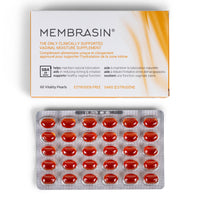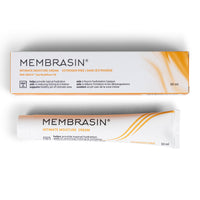The Particulars of Perimenopause
Though menopause has a lot more visibility, changes in your body can start much earlier during a period called perimenopause. Perimenopause is when your body gradually prepares for menopause, which occurs one year after you’ve stopped having menstrual periods. So, if you’re wondering what to expect or if your experience is normal, let’s talk about what happens to your body during this aging process.
When Perimenopause Starts
The onset of perimenopause varies from woman to woman, but it typically starts around your forties. When perimenopause begins, your ovaries slow their production of estrogen, which can lead to an array of symptoms that are commonly associated with menopause. Once perimenopause arrives, most women experience symptoms for around four years, but the range varies from mere months to a decade.

How to Tell If Perimenopause Has Begun
If you’re on a birth control pill that eliminated your period, it can be difficult to tell when menopause has begun. What’s more confusing yet is that if you’re on a birth control pill that allows you to get your period each month, you’re bleeding because of hormone withdrawal and not necessarily because you're still ovulating—and this could continue into menopause. Finding out if ovulation-caused periods have stopped can be as simple as getting a blood test from your doctor after you have discontinued your birth control for a certain amount of time.
Symptoms of Perimenopause
As you go through perimenopause, you can expect to have hot flashes, vaginal dryness, trouble sleeping, erratic periods of menstruation, fatigue, acne, and mood swings. Fortunately, some of these symptoms—like hot flashes—tend to even out once estrogen stops declining. Unfortunately, vaginal dryness is not a symptom that typically goes away without intervention.
Keep in mind that you can still get pregnant while going through perimenopause, so don’t stop your birth control methods until you have received the all-clear from your doctor. The silver lining of continuing birth control is that many birth control methods help with hot flashes. However, it’s best to consult with your doctor before continuing use, as the birth control methods with estrogen or other hormones may carry health risks that are more dangerous with age.
Getting Through Perimenopause in Style
Though the symptoms that come along with menopause are considered a normal part of the aging process, that doesn’t mean you have to suffer through them. Some studies have found that one in five peri- and post-menopausal women seeks treatment for vaginal dryness, though the numbers for those who have untreated vaginal dryness are much higher. Vaginal dryness isn’t merely a nuisance; untreated, it can increase your chance for infection and debilitate your sex drive. It’s vital that women are aware that natural, hormone-free options can help ease their symptoms.

If you are experiencing vaginal dryness during perimenopause, know that you’re not alone. This symptom is common, and it doesn’t necessarily reflect a decline in your sex drive. To help your vaginal dryness symptoms during perimenopause, try the Membrasin® 2-Step Starter Pack, which includes Vitality Pearls to help support moisture from the inside and Intimate Moisture Cream to address topical dryness.



